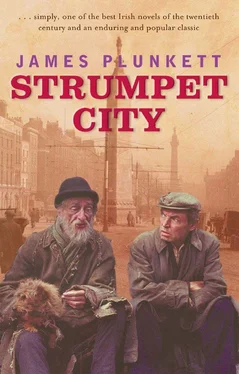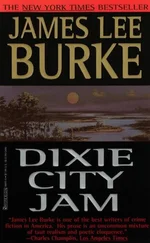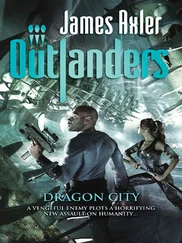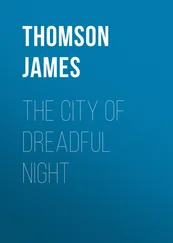‘Watch out for shells,’ Fitz said over his shoulder.
She smiled to let him know that she remembered.
He took her hand. At the touch of his fingers on hers they both stopped. In a moment he had come close to her. His face, above hers, was dark against the sun; but hers was radiant and expectant, her mouth half open, her eyes closed. Alone in the centre of the sun-filled strand they kissed. Her own love frightened her. She said:
‘What is going to become of me if I keep on loving you like this?’
He held her to him, repeating her name. After a while she released herself gently and they walked on again, hand in hand, until the sand became dry and after that fine and shot through with silver specks which clothed their feet. They climbed among the hillocks of strong, sparse grass and sat down. Behind them the narrow breakwater reached out a further mile into the sea, dividing the river at their backs from the strand in front of them, keeping navigable depth for the shipping traffic of the Port of Dublin. The strand they had just crossed was sunlit and empty. They were quite alone.
‘Were you waiting a long time?’ Mary asked.
‘Not very long, but I was a bit afraid Miss Gilchrist had taken the day herself and left you stuck in the house.’
‘She wouldn’t look at the King. She’s a Fenian.’
‘All the Fenians are dead and gone.’
‘Not for her. She keeps a picture of one of them in her room. They used to call at her house when she was a child in Tipperary. She told me she once saw the watchfires lit on the hills and it was a signal for a rising against the British.’
‘I’d like to have seen them myself,’ Fitz admitted.
‘It does no good,’ Mary said.
She had brought some sandwiches with her, which she had filled with left-over meat. Fitz had a bottle with milk and also some oranges. They began to eat. The walk across the strand and the salt flavour of the air lent an edge to their appetites.
‘Ham,’ Fitz remarked appreciatively. He bit into the sandwich.
‘Pity it’s not tomorrow,’ Mary said. ‘They’ll have chicken tonight, for Father O’Connor and Mr. Yearling.’
As Fitz took another, a thought struck him.
‘If they ever want a butler, let me know.’
He broke a piece of bread and threw it lazily across the sand towards a gull which had been resting, its head tucked in tight against its shoulders. The gull was awake immediately. It stalked across and began to eat.
‘It’s beautiful here,’ Mary said.
‘As nice as Cahirdermot?’ Fitz asked.
‘Different. We had only mountains and fields. There was a river too, of course, but only the boys used to swim.’
They finished their meal and walked across to where firmer sand began beyond the tide-mark. At a pool left by the tide they knelt close together and peered among the rocks and seaweed. A dead crab, tangled in a frond of seaweed, swayed gently beneath the surface. It was a small, green crab, its upturned belly showing the V-shaped cut in its shell. Fitz pointed at this.
‘That’s where he keeps his money.’
Mary saw his face reflected in the pool, so close to her own that they might have been painted together on a medallion, against a background of blue sky and barely discernible wisps of white cloud. Fitz, she knew, was telling her something he had believed as a child. She had often wondered about his childhood, about his growing up in the noise and bustle of the city, about his work among trundling carts and swinging cranes and furnaces so huge that when he told her of them she thought of hell and its fire. How had he remained gentle and kind through all that? Perhaps it was because of the sea and the strand, the beautiful summer strands where even the poorest child could wander and hunt in the pools for crabs, hoping some day to find one that carried money in its purse. She rested her head against his shoulder, linking her arm through his.
‘You believed the funniest things when you were a child. You must have been happy.’
‘I’m happier now.’ Fitz pushed her hair back from her face.
They rose and began to walk again. Far away, near the Martello Tower at Sandymount, tiny figures on horseback moved to and fro. The young ladies from the riding schools of Tritonville Road were exercising on the sands. They went back again among the coarse grasses of the sandbanks. When they were seated a moment Fitz drew her down until they were lying side by side.
After what seemed a long time he said:
‘You love me?’
He had withdrawn a little to ask her and she could see his face. Its tenderness brought her near to tears. She nodded.
‘Say it.’
She paused a moment and then said:
‘I love you.’
‘And you’ll marry me?’
I’ll marry you.’
He drew something from his pocket and held it towards her. It was a ring.
‘I know you can’t wear it yet about the house, but I’d like you to take it and keep it with you.’
She put it on her finger.
‘It’s not a very dear one,’ he said humbly. Again the tears gathered because of the way she felt.
‘It’s beautiful,’ she said.
She wanted to give him something in exchange, a memento which would stand ever afterwards for the happiness of the day. She had nothing with her.
They delayed until the edge of the incoming tide was less than a hundred yards away. It approached slowly over the flat sands, rimmed by an edge of white foam. Here and there streamlets, like the scouts of an approaching army, crept forward in advance of the main body. It was time to go. They left the sandhills and climbed up on to the breakwater which was as wide as a road but unevenly surfaced, for the foundations had moved and the great granite blocks which comprised it had angled in places. Sand and fragments of shells, the remnants of winter storms and furious seas, filled the gaps where the granite had parted.
They stopped to watch a coal boat moving up river towards the bay. It glided full of peaceful purpose. The waves in its wake rolled towards them and broke at last against the stonework, a commotion about nothing. Screaming and swooping, the white gulls followed the ship.
‘How soon do you think we could manage?’ Fitz asked.
Mary wasn’t sure. They would have to save money. She told him she would not care to live in a house with others and of her hope that the Bradshaws would help them to get a cottage.
‘I have some money saved,’ she said.
Fitz had none. But his job was steady and, compared with most of the others, not badly paid. They talked until Mary, thinking once more of the time, said urgently:
‘Fitz, we must hurry.’
They began to walk again. In an hour they were back in the streets of the city and Fitz was waiting to see her on to the tram. She was pensive, thinking of the day they had spent together.
‘A penny for them,’ Fitz offered.
‘I’m feeling sad.’
‘About what?’
‘Our lovely day—all gone.’
‘There’ll be others,’ Fitz said.
‘Will you think about it—I mean tonight when you’re working?’
‘Nearly all the time.’
‘Here’s my tram,’ she said. On and off she had been wishing for something to give him and now the solution occurred to her. She took Rashers’ ribbons from her coat and pushed them into his hand. He looked at them, puzzled.
‘To remember,’ she said.
She was afraid he might laugh, or that he might think she was mad. Or, because he was not in favour of the King, that he might be angry.
He took them gravely and said:
‘I’ll keep them, always.’
Her heart quickened. She was filled with happiness.
He helped her on to the tram, waved, and was gone. She sat once more on the outside, hearing the trolley’s conversational humming and feeling the wind against her cheeks and hair as the tram battled its sturdy way towards Kingstown.
Читать дальше












